Focus industries

Find out more about your industry in Amsterdam with information on the following sectors: ICT, logistics, creative, life sciences, financial and business services, fashion, aerospace, hotels, real estate and food.
Amsterdam has the highest concentration of denim brands in the world
Logistics
Amsterdam is located in an extremely central location that connects you with the 500 million potential customers in the European marketplace. The presence of Europe’s best airport (Amsterdam Airport Schiphol), seaport (Ports of Amsterdam and Rotterdam), greenport (FloraHolland) and dataport (AMS-IX) gives Amsterdam a lead in the logistics market of the future.
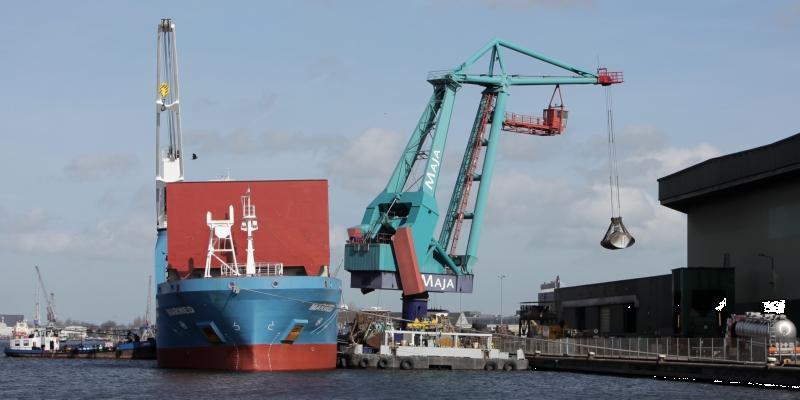
Experience
In the Amsterdam Area you’ll discover more than 400 years of experience with international trade and logistics. And in recent decades, some 2,000 logistics companies have settled here, bringing an abundance of knowledge and well-established connections to all destinations around the world.
Innovation hub
Close and continuous cooperation between the government, knowledge institutes and the private sector has helped to develop innovative solutions to improve the logistics chain. These have transformed the region into a logistics innovation hub. One of the key results is the iconic ‘Seamless Connections’ project.
Fashion
The Amsterdam Metropolitan Area is a true fashion hub that’s home to more than 100 fashion houses. Hip, new brands and iconic designers have all flocked to the Amsterdam Area to benefit from the advantages of doing business here, and the city prides itself on being the denim capital of the world.
Home to headquarters
All relevant contacts are just a stone’s throw away: Amsterdam is home to design, production, wholesale and retail companies. In addition, many fashion labels have chosen Amsterdam as the location of their (European) headquarters. Tommy Hilfiger and Calvin Klein’s head office relocated from New York to Amsterdam; Chanel’s International Headquarters has followed suit.
There are 57 non-Dutch fashion companies that are currently based in the Amsterdam Metropolitan Area, with 25 of these companies basing their headquarters in the area. These companies employ 4,958 workers. High-profile international fashion corporates in Amsterdam include Calvin Klein and Tommy Hilfiger, but there are also prominent Dutch businesses in the sector, such as G-Star, Gsus and Denham the Jeanmaker.
Denim capital of the world
Amsterdam’s denim industry is thriving: the city has the highest concentration of denim brands in the world. A conservative estimate by the municipal research bureau O+S puts the annual turnover of the Amsterdam denim industry at some €500 million. The G-Star denim label began its worldwide advance here, as did Gsus and G+N. Kuyichi, the first-ever label for organic jeans, was set up here. Even iconic brands such as Levi’s and Diesel have recognised Amsterdam’s pivotal position in the denim world and have chosen the city as the location for their design studios. Various initiatives, lobby groups and trade fairs such as Denim City, Denim Days,Kingpins, House of Denim and the Jean School have done their part in manifesting Amsterdam’s status as denim capital of the world.

Financial and business services
Amsterdam has a long and illustrious heritage of financial innovation. It established the world’s first central bank, was the cradle of the world’s first joint stock company and provided one of the earliest examples of a company pension scheme. Today, Amsterdam is one of the most innovative of the major financial centres in Europe.
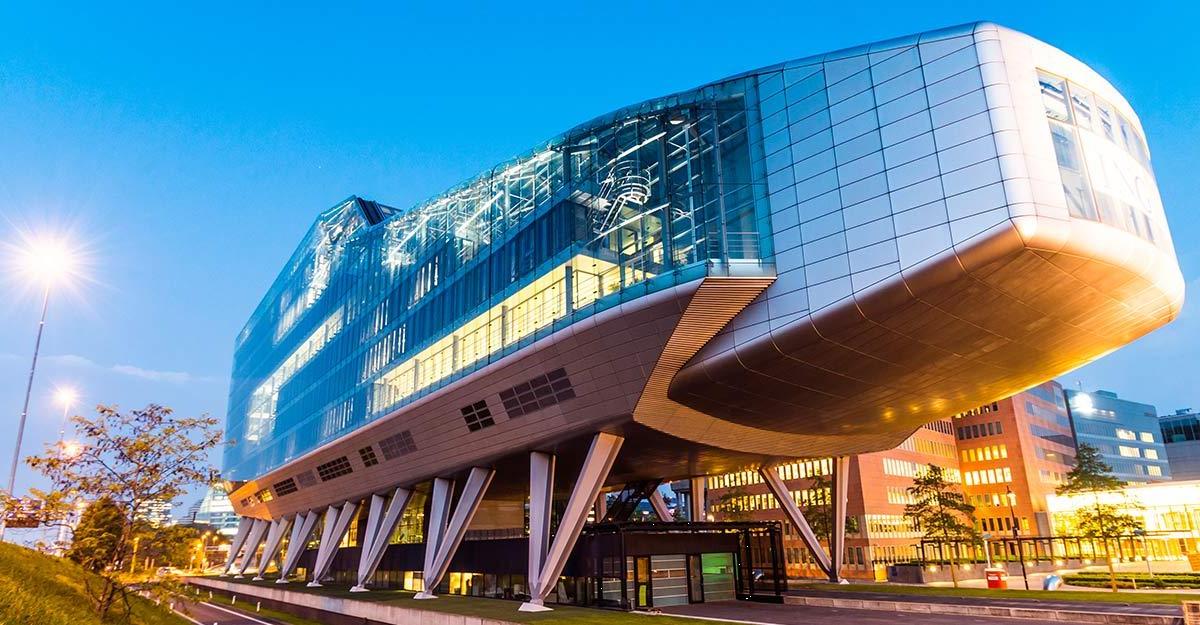
Platform for innovation
As the home of the largest data transport hub in the world, the Amsterdam Internet Exchange (AMS-IX), Amsterdam has one of the most impressive digital infrastructures in Europe. This guarantees the fastest and the best possible transmission and execution of instructions and orders. No wonder so many high-frequency traders, such as IMC, are located in Amsterdam. The Dutch dominance in the digital arena has also attracted many innovative financial businesses. It is the largest sector in the Amsterdam Metropolitan Area, accounting for 25% of the regional economy (GDP of the region) and providing 255,000 jobs – roughly 19% of the employment market in the area.
Perhaps the most valuable asset the Amsterdam Area has to offer is its human capital. Its inhabitants are multilingual (more than 80% speak English), internationally oriented and highly qualified (40% have a university degree or one from higher vocational education).
FinTech hub
The FinTech (financial technology) branch of the finance sector, in which businesses utilise software to provide financial services, has boomed recently, mostly due to the fast-moving digitalisation of the business world. Over the last 10 years, Amsterdam has positioned itself as Europe’s FinTech hub, and this role is constantly growing. Amsterdam-based companies that specialise in FinTech services include online bank Bunq, the branch organisation Holland Fintech and startups such as Leapfunder, Sparkholder and Cash or Card. There are also various support networks in the sector, including ING’s Innovation Studio in Amsterdam, which is a global startup campaign that aims to find the best and most promising startups in the FinTech sector.
Close to important customers
In addition to the major Dutch financial institutions, the region is home to all the major players in the global playing field. The Amsterdam Area is a major asset management centre and is home to the world’s largest pension funds and leading asset managers. Moreover, the region has many international law and accountancy firms. Amsterdam is home to the global headquarters of accounting firms KPMG, Nauta Dutilh, and a host of other professional service firms, such as Randstad, Loyens & Loeff covering legal affairs, management, pensions and tax consultancy, all of which serve to ensure businesses in the area are served efficiently
Food
Renowned for innovation and exports, the Amsterdam Metropolitan Area is home to a major concentration of 3,600 food companies. Important factors contributing to the success of companies like Heineken, Cargill and Mead Johnson in the Amsterdam Area are the region’s strategic location, great logistics and technology infrastructure, international business environment, strong workforce and competitive fiscal climate.
Strategic logistics hub
The region is home to two main transportation and logistics hubs: Amsterdam Airport Schiphol and the Port of Amsterdam. These two facilities offer cutting-edge multi-modal logistics platforms and possibilities for expansion, and both are leading the way in sustainable innovation. Schiphol is home to dedicated logistics providers such as Freshport and The Port of Amsterdam is the world’s largest cocoa port.
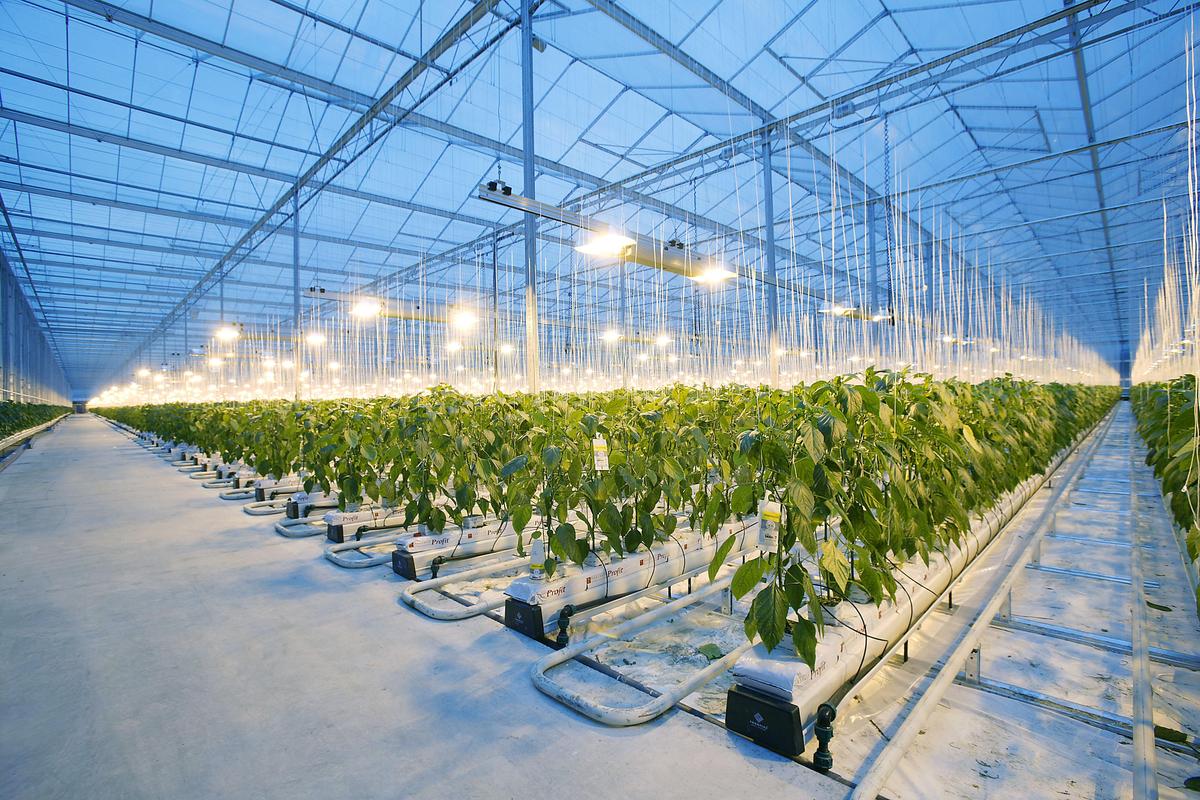
Innovative workforce
Our innovative capacity is catalysed bythe successful co-operation between the business community, knowledge institutes and the government. An example is the partnership in agri-food innovation between the University of Amsterdam, the VU University and Wageningen UR (University and Research Centre). The close collaboration with governmental parties and stakeholders leads to stronger entrepreneurship and growth of the food sector.
International business environment
Many global players in the fields of professional services, covering legal affairs, HR and tax consultancy, have chosen to set up their business here. This includes service providers like Axon Lawyers, who are specialised in catering to companies in the food industry. The business environment provides additional incentive to follow the example of multinational food companies such as Brown-Forman, Fonterra and Cargill, who have all chosen to set up their headquarters in the Amsterdam Area.
Aerospace
The Amsterdam Area is home to a world-class aerospace community and the aerospace industry has been honing strong traditions for over a decade. Leading international companies such as Bombardier, GE Aviation, Mitsubishi Aircraft and CAE have set up operations at Amsterdam Airport Schiphol. They use their base here for their MRO, spare parts logistics, training facilities and office functions (i.e. marketing and sales, holding and leasing companies) in Europe.
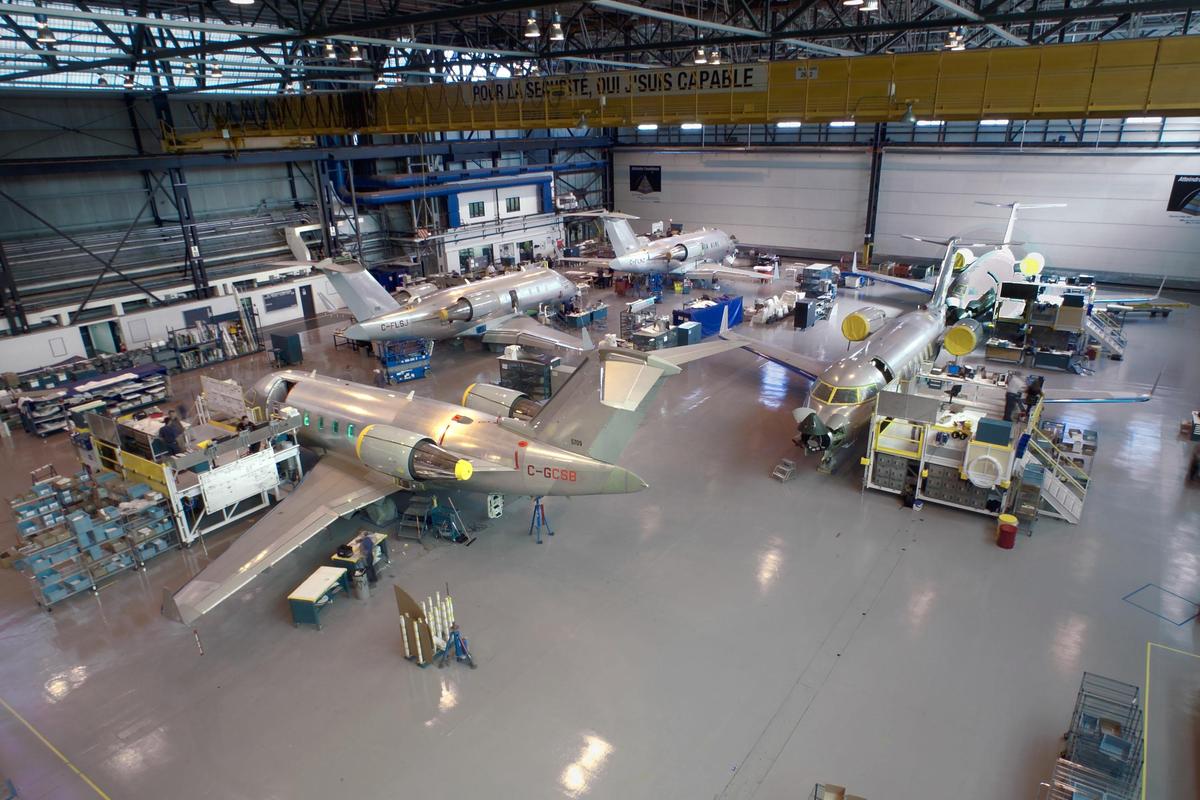
Your neutral and central gateway
Amsterdam Airport Schiphol offers an ideal environment for OEMs like Bombardier and Fokker Services, their suppliers and sub-suppliers. Schiphol is connected to many OEMs’ hometowns – for example Seattle, Montreal, São Paulo, Tokyo and Toulouse – by daily direct, non-stop flights.
Ideal logistics hub
Europe’s fourth largest airport by passengers flown and third largest by cargo volume, Amsterdam Airport Schiphol is the second best-connected airport on earth. Amsterdam is your perfect logistics hub, home to numerous specialised third-party logistics providers with a dedicated aerospace vertical: examples are Aviall, DB Schenker, IJS Global and Wencor. Strategically located within the EU, Amsterdam’s dense, high-quality infrastructure offers fast connections to all important markets, regardless which means of transportation you prefer.
Talent
A wide range of specialised educational institutions, e.g. VTOC Fokker, has built a strong basis for our dedicated and flexible aerospace labour force. An extra advantage of Dutch skilled aerospace maintenance staff is that they’re multilingual. Due to this and other factors, many aerospace companies such as CAE and FlightSafety International have set up their training facilities here.
The National Aerospace Laboratory (NLR) is the independent knowledge enterprise in the Netherlands on aerospace. The overall mission is making air transport and space exploration safer, more sustainable and more efficient. NLR’s multidisciplinary approach focuses on developing new and cost effective technologies for aviation and space, from design support to production technology and MRO (Maintenance, Repair and Overhaul).
Information Technology
Amsterdam is a thriving tech and IT hub. Home to innovative tech companies and a bustling startup scene, it is the ideal breeding ground for cross-border collaborations with top class digital, creative and marketing companies.
International and local players
Global players such as Google, Netflix, Uber, Salesforce, Shutterstock, Cisco, Palo Alto Networks, Microsoft, RedHat, Joyent, LinkedIn, Apple and Instant Commerce have already set up shop to make the most of the perfect conditions available in the city. There are roughly 578 international IT companies in the Netherlands, collectively employing around 35,000 people. Around 170 of these companies choose Amsterdam for their headquarters, too. And there is plenty of local talent: homegrown successes includeTomTom, Travelbird, The Next Web, Booking.com, Elastic, WeTransfer and the FinTech unicorn Adyen.
Impressive digital infrastructure
Amsterdam is home to the largest data transport hub in the world, the Amsterdam Internet Exchange (AMS-IX), and the Netherlands is renowned for having one of the fastest average broadband speeds in the world. About one third of European data centres (including Interxion and Equinix) are located in the Amsterdam Metropolitan Area.
The Dutch consumer market is a pilot market for the rest of Europe
Creative industry
Amsterdam’s high quality of life and a laid-back atmosphere attract talent and fuel creativity and ambition. It’s a cosmopolitan village and creative capital where international, award-winning ideas, fashion, design and campaigns come into being.

A cradle for vibrant ideas
Amsterdam has a long and illustrious history as a hotspot for innovations of all types. The city attracts creatives of all stripes, who find it easy to meet open-minded partners and cooperate across disciplines; as a result, creative industries such as advertising, TV, music, app development, and gaming are thriving. Amsterdam is home to some of the world’s leading advertising companies, including 180, Wieden + Kennedy and 72andSunny; the region has emerged as a pioneering location for the development of television formats; and the Amsterdam Dance Event (ADE) is a worldwide phenomenon. And the abundance of creative businesses of all stripes can afford your company the advantage of spillover when disciplines cross over.
Cosmopolitan village
Due to its easy-to-navigate size, all relevant contacts are just a stone’s throw away and this makes the process of creation and production fast and flexible. The strong bike culture – the 800,000 people who live in Amsterdam own an estimated 881,000 bicycles – is especially appreciated among creative professionals.
Startup hub
The Amsterdam Area is one of Europe’s most buzz-worthy startup hubs, too. Amsterdam is a natural testbed for startups thanks to a strong startup support system, a tech-savvy consumer base, a huge international talent pool and a great position for scaling into Europe.
Social entrepreneurship
Amsterdam is an ideal homebase for social entrepreneurs, offering the networks, ecosystem and business preconditions to make impact enterprises a success.
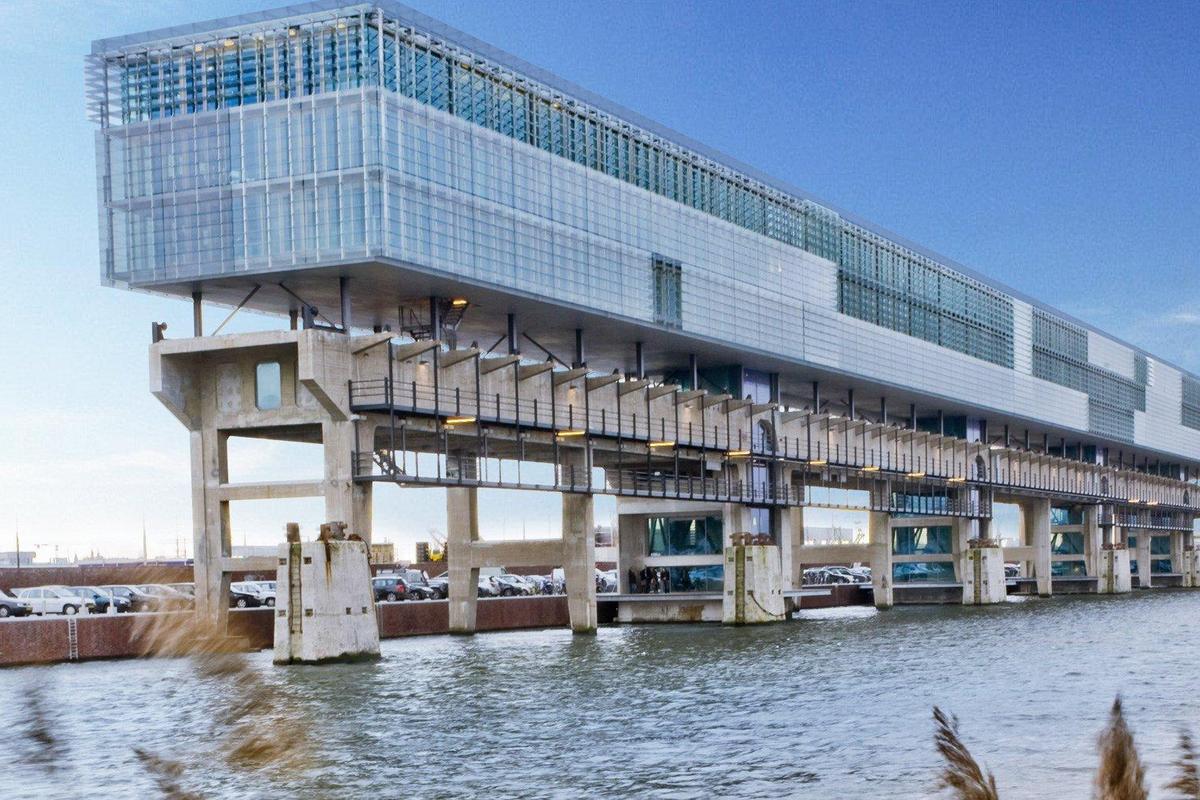
Social entrepreneurship, also known as impact entrepreneurship, means doing business with a social perspective: making a positive impact on society is the priority. Social entrepreneurs contribute daily to making Amsterdam dynamic, liveable and healthy. With business acumen, innovation and creativity, they go after their dreams – and they keep going. Along the way, they achieve their goals by new and inspiring ways.
Connecting all players in the impact ecosystem
For these impact entrepreneurs, Amsterdam is the ideal stomping ground. The City of Amsterdam is actively supporting social enterprises. It strengthens the ecosystem with various measures, offers young businesses new opportunities by acting as a launching customer and organises competitions regarding social issues that are relevant to the municipality. On several platforms and at many events, the business ecosystem connects a diverse range of educators, colleges, universities, impact investors, intermediaries and programmes with a focus on social enterprise with each other. Together, we are Amsterdam Impact: working together to make an impact.
Impact businesses in Amsterdam
Amsterdam is already home to a large number of social enterprises. One example is the De Prael brewery, which offers employment to people who have had trouble finding work due to a history of mental illness or other issues. Another is Tony Chocolonely, which uses Amsterdam as a vantage point to work towards fairer and more sustainable chocolate production worldwide. Or take Konnektid, a platform enabling people to share skills and expertise. And then there’s Taxi Electric, the first electric taxi service in Europe.
Life sciences
The Amsterdam Metropolitan Area is the leading region for Life Sciences research in the Netherlands. It is home to two respected universities, academic hospitals and many specialised research institutes. As a hotspot for innovation, the Amsterdam Metropolitan Area is the place to be for innovative companies in the life sciences sector such as Bioventus and EpiVax.
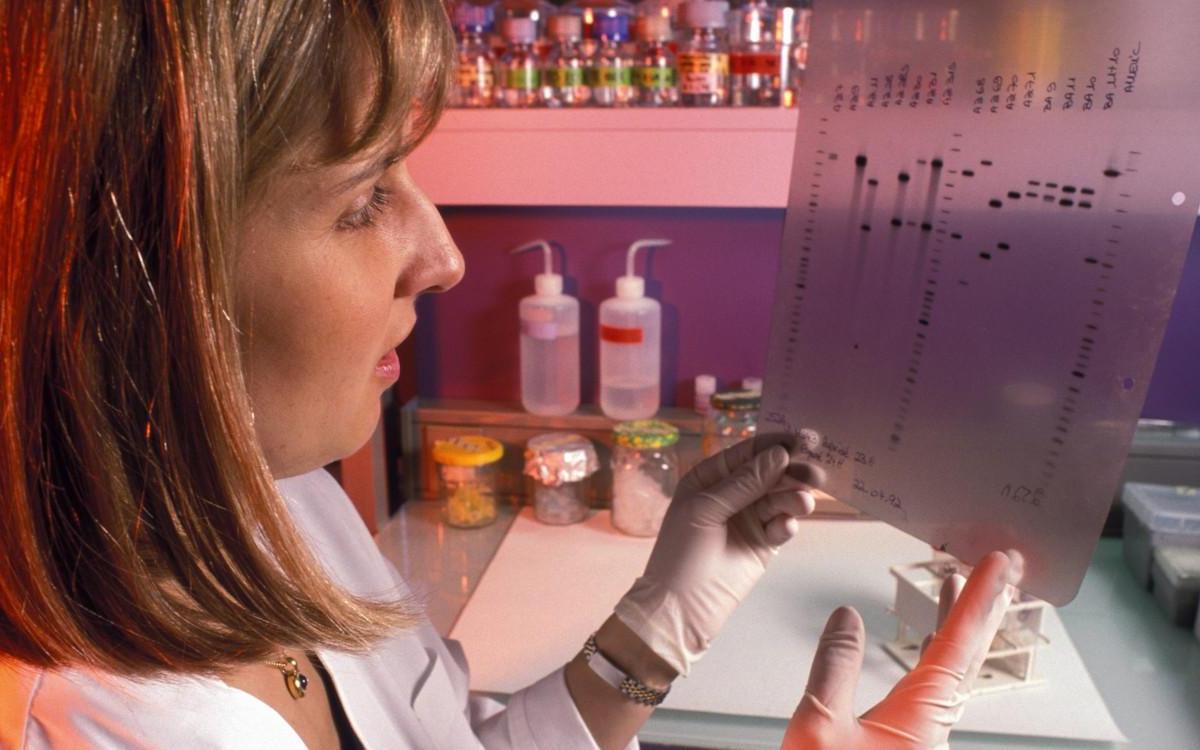
Excellent infrastructure for research
The Amsterdam Area is home to two respected universities, academic hospitals and many specialised research institutes. Other major institutes include the Netherlands Cancer Institute, the Sanquin Blood Supply Foundation and ACTA (one of the top dental education and research facilities in the world). Other scientific hotspots such as Wageningen and Leiden are about an hour away. This ensures that all companies active in Life Sciences enjoy superb access to innovative technologies, clinical trials, biobanks and centres of expertise. The companies directly active in Life Sciences are aided by hundreds of specialised partners in financial & business services, ICT and logistics.
Bringing your innovation to the rest of the world
The Amsterdam Area is an exceptional logistics hub from where to ship your precious products. Amsterdam Airport Schiphol, the Port of Amsterdam and high quality road and rail links ensure the region is a gateway to Europe and beyond. Specialist services such as a pharma zone at Amsterdam Airport Schiphol, biomass transhipment facilities at the Port of Amsterdam and guidance from the Pharma Logistics Steering Group ensure the region is a leader in Life Sciences-related logistics. Also the Amsterdam Science Park brings business, science and innovation together.
Film and Broadcasting
Amsterdam is a beautiful city with a mixed landscape of 16th century canal houses, lush, green parks and also contemporary office buildings. As such, it offers wonderfully unique opportunities for filmmaking and production, both for local companies and larger international clientele.
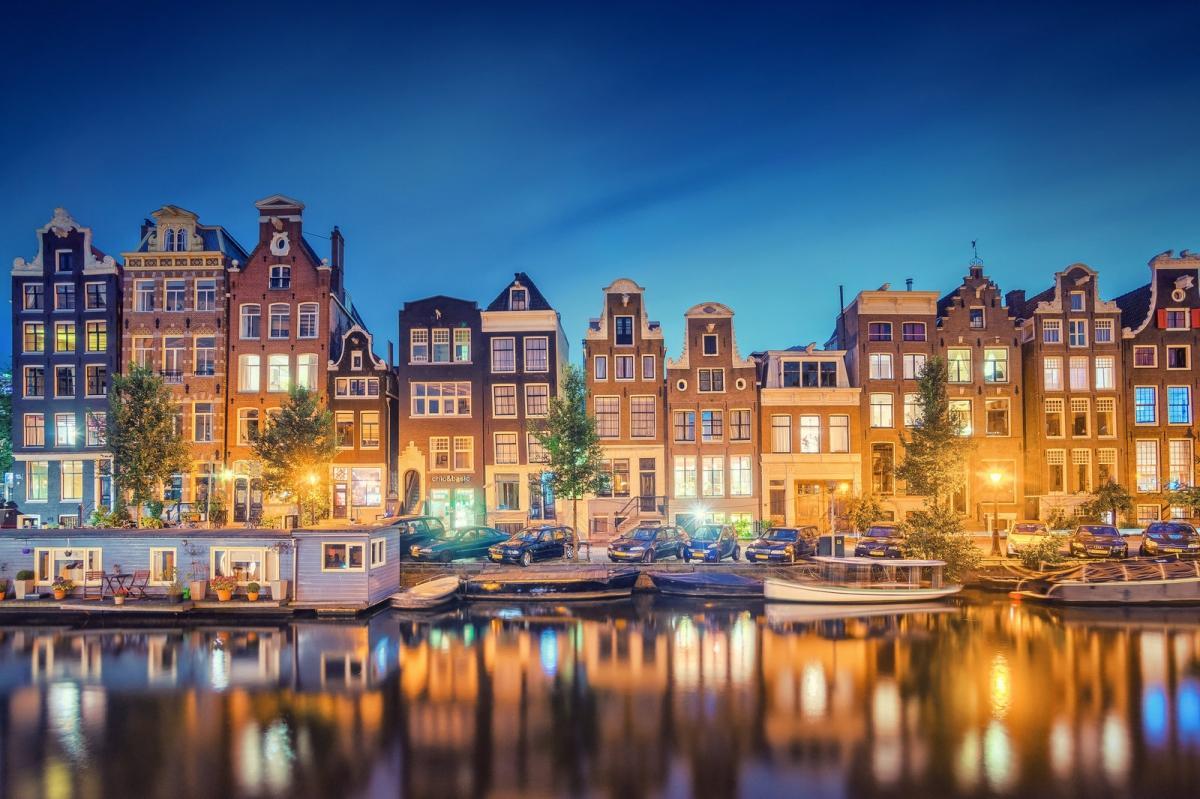
Filming in Amsterdam
In principle, shooting a film in Amsterdam does not require a permit. However, you should always notify the appropriate city district before making any recordings. This allows the City of Amsterdam to ensure that multiple events or activities at your chosen location are not taking place simultaneously. Also, for some activities, such as the closure of public roads or the placement of objects or props in public areas, permits, waivers or additional consent may be required.
This form will help to quickly and clearly establish whether registration is sufficient, or if further permits are required. More information can be found here.
Real estate
The Amsterdam Metropolitan Area offers attractive investment opportunities in real estate, from small-scale developments to grand new projects. The Amsterdam Metropolitan Area is one of Europe’s five most stable and successful regions, and Amsterdam, the Dutch capital, is a cosmopolitan and cultural city with international allure, famous for its entrepreneurial spirit. The region holds a strong international position in financial and business services, ICT, media, the creative sector, higher education and logistics.
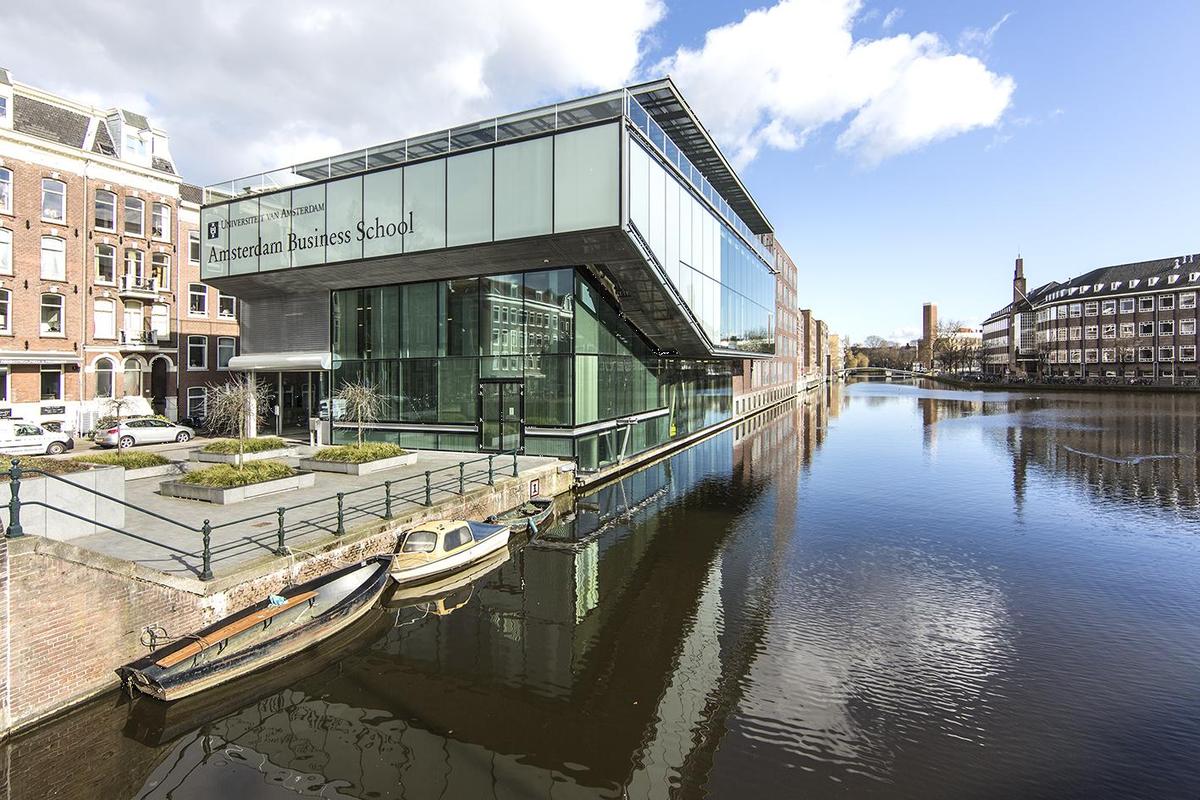
Why invest in the Amsterdam Area?
The Amsterdam Area encompasses 1125 square metres, is economically and politically stable and successful and is located in a central location of the European marketplace. Because of the region’s growth, about 10,000 new residential units will need to be developed annually over the next few years. In brief:
- Property prices are still modest, though steadily rising. Return on investments in residential real estate is solid and low risk.
- Redevelopment and transformation of office space is actively stimulated.
- The region offers a wide range of attractive projects, from small-scale developments to grand new projects.
- The region is heavily investing in further improving the infrastructure.
- There are possibilities to scale up in the Netherlands and Europe is also within easy reach because of Amsterdam’s accessibility.
